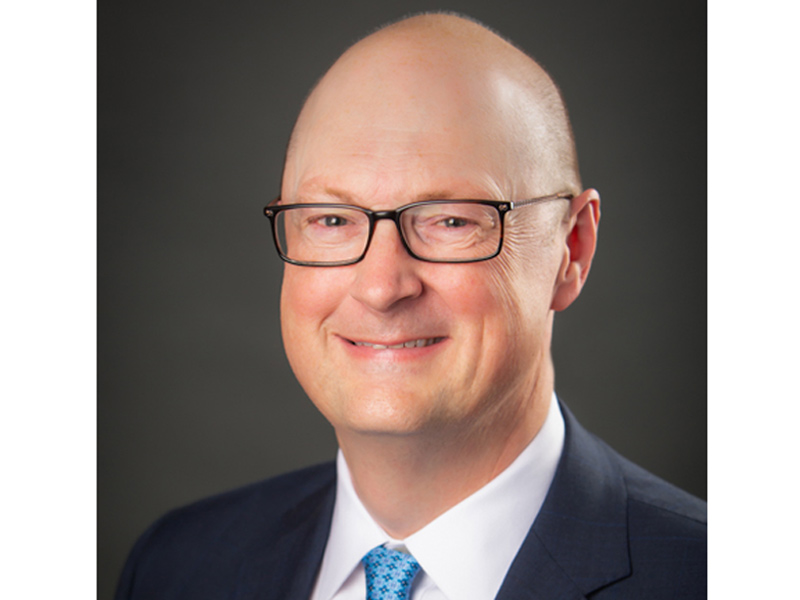New AAFP President: Fight Back Against Misinformation
Ransone Urges Peers to Be Educators, Advocates
September 28, 2021, 12:00 p.m. News Staff ― Sterling Ransone, M.D., didn’t leave residency with a grand vision to become a leader in family medicine, but the needs of his patients demanded it.

Ransone said Sept. 28 during his speech at the 2021 Family Medicine Experience that he got involved with advocacy after an insurance company denied coverage of a prescription he had given a patient “because it was written by me, a family physician, and not a ‘specialist.’”
“I became upset,” said Ransone, the AAFP’s newly installed president. “I am a specialist in family medicine.”
Ransone said he felt frustrated and powerless when numerous appeals and inquiries failed to help his patient. He submitted a resolution and provided testimony to the Medical Society of Virginia’s House of Delegates that said insurers should not be allowed to compromise patient care by infringing on the prescribing authority of physicians. The resolution passed and became policy of that organization.
“That insurer was faced with the power of an organized group of physicians demanding change,” said Ransone, who added that the insurer ultimately changed its position. “My patients could finally receive the quality medical care they deserved from the family medicine specialist they knew and trusted in their local community.”
Ransone said that incident got him hooked on advocacy and also got the attention of Virginia AFP leadership, which asked him to take a more active role in his state chapter. During more than two decades of practice in rural Virginia, Ransone has served as president of both his chapter and his state medical society.
“I discovered that the tools of active listening, thoughtful action and compassionate service that I learned in training to become a family physician were the same skills I could use to advocate for patients and our profession at multiple levels,” he said. “Those skills are what each of you learned as well. They’re what make you leaders.”
Ransone, a third-generation family physician, praised his peers for their hard work and sacrifice throughout the pandemic and urged them to fight back against the “dangerous flood of medical misinformation and anti-science bias” that is endangering patients and complicating daily practice. Health myths, he said, have evolve from “a time-consuming annoyance” into “a separate, confounding and deadly public health crisis.”
“We cannot sit this one out,” he said. “Correcting untruths and educating our population is what we must do as physician leaders in our communities. Make no mistake, we are on the front lines of this battle because as family physicians our patients turn to us in these times of uncertainty.”
Ransone acknowledged that studies have shown that primary care physicians have had the highest mortality rate among clinicians during the pandemic, and COVID-19 has exacerbated physician burnout. He said the way out of the chaos is to assert control.
“We can gain that control by using the trust we have earned as advocates for our patients and straightforward arbiters of sound, evidence-based medicine,” he said. “I urge each of you to use your positions as family physicians and as leaders to reach out beyond your office walls to take the truth into your communities.”
Ransone worked as a page in the Virginia General Assembly as young man, giving him an up-close view of the power and benefit of good ideas as well as the negative impact of bad policy. He said that effective advocacy is done primarily through building relationships, “which is what we naturally do as family physicians.”
“Just as our patients trust us, so do legislators, administrators and regulators,” he said.
Ransone said that in his year as AAFP president, he aims to help the Academy in its drive for the following objectives:
- an outpatient-centered health care system focused on every person in every community having a family physician;
- innovations that reduce administrative burden and allow physician to focus on patient care;
- patient access to vibrant support teams, “including other specialists who are instruments and not obstacles,” to optimal outcomes; and
- improved payment structures for primary care.
Finally, Ransone emphasized that whatever challenge family physicians are facing — clinical, health equity, personal well-being or advocacy — the AAFP has tools and resources to help.
“The Academy is here to back you up,” he said. “You are not alone.”